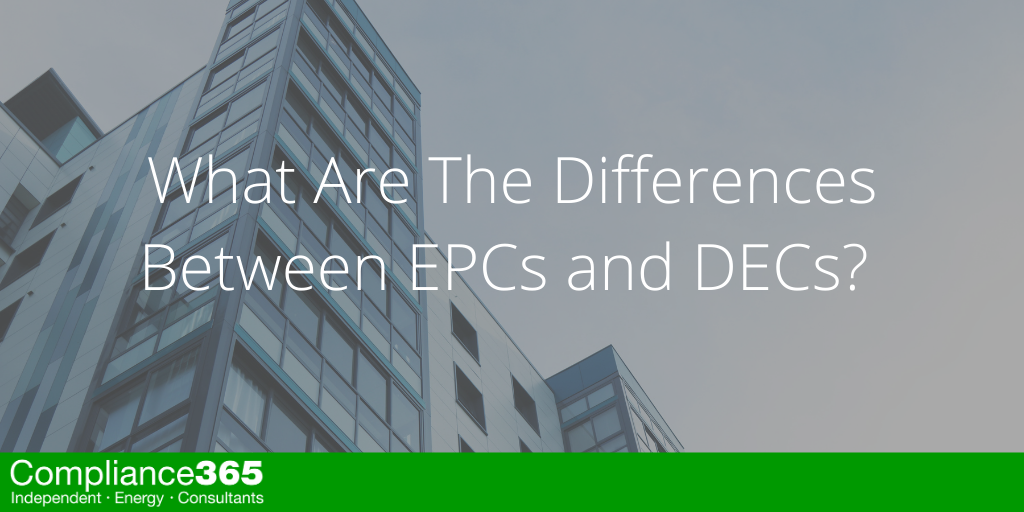If you are a property manager, when it comes to energy efficiency of a building, the two key certificates to ensure you comply to are EPCs and DECs.
DECs
A Display Energy Certificate (DEC) shows the energy performance of a building, based on the operational rating, on a graphical scale from A (very efficient) to G (least efficient). A DEC must be accompanied by a Recommendation Report which outlines how the organisation can reduce their energy consumption.
DECs were introduced to help improve the energy efficiency of buildings and to inform visitors about a building’s energy usage. The energy efficiency rating provided by the DEC allows Compliance365 to make recommendations to you that should improve your building’s energy efficiency.
EPCs
An Energy Performance Certificate (EPC) is a legal requirement whenever a property is built, sold or rented.
Since October 2008, legislation, under the Energy Performance of Buildings Directive, has made it illegal to market a property without a valid EPC. You must order an EPC for potential buyers and tenants before you market your property to sell or rent. In Scotland, you must display the EPC somewhere in the property.
What Are The Differences?
DECs measure the actual energy usage of a building based on annual consumption, whereas EPCs measure the energy efficiency of the building based on the type and level of insulation in walls and roofs, and the efficiency of services such as heating, lighting or ventilation.
A DEC rates how efficient a building is in operation and are required for buildings with a total useful floor area over 250m2 that are occupied in whole or part by the public authorities and frequently visited by the public. In contrast, an EPC is a theoretical measure of how efficient it could be. Buildings over 1,000m2 need to renew their DECs annually. DECs for smaller buildings, under 1,000m2, are valid for 10 years. Accompanying Recommendation Reports are valid for seven years for larger building and ten years for smaller buildings.
An EPC is a legal requirement when a property is leased or sold. A new EPC is required if a building has had major renovations to a property. The accompanying Recommendation Reports get renewed alongside the EPC renewal.
Both EPCs and DECs are a legal requirement and result in a fine for failure to comply. You could be fined up to £5,000 if you do not make an EPC available to a prospective buyer or tenant. The penalty for failure to display a DEC is £500 and a further £1000 for failure to obtain an advisory report.
Get in touch today to find out more about how we can help you. Call us on 01924 669940 or send us an email to sales@compliance365.co.uk.

